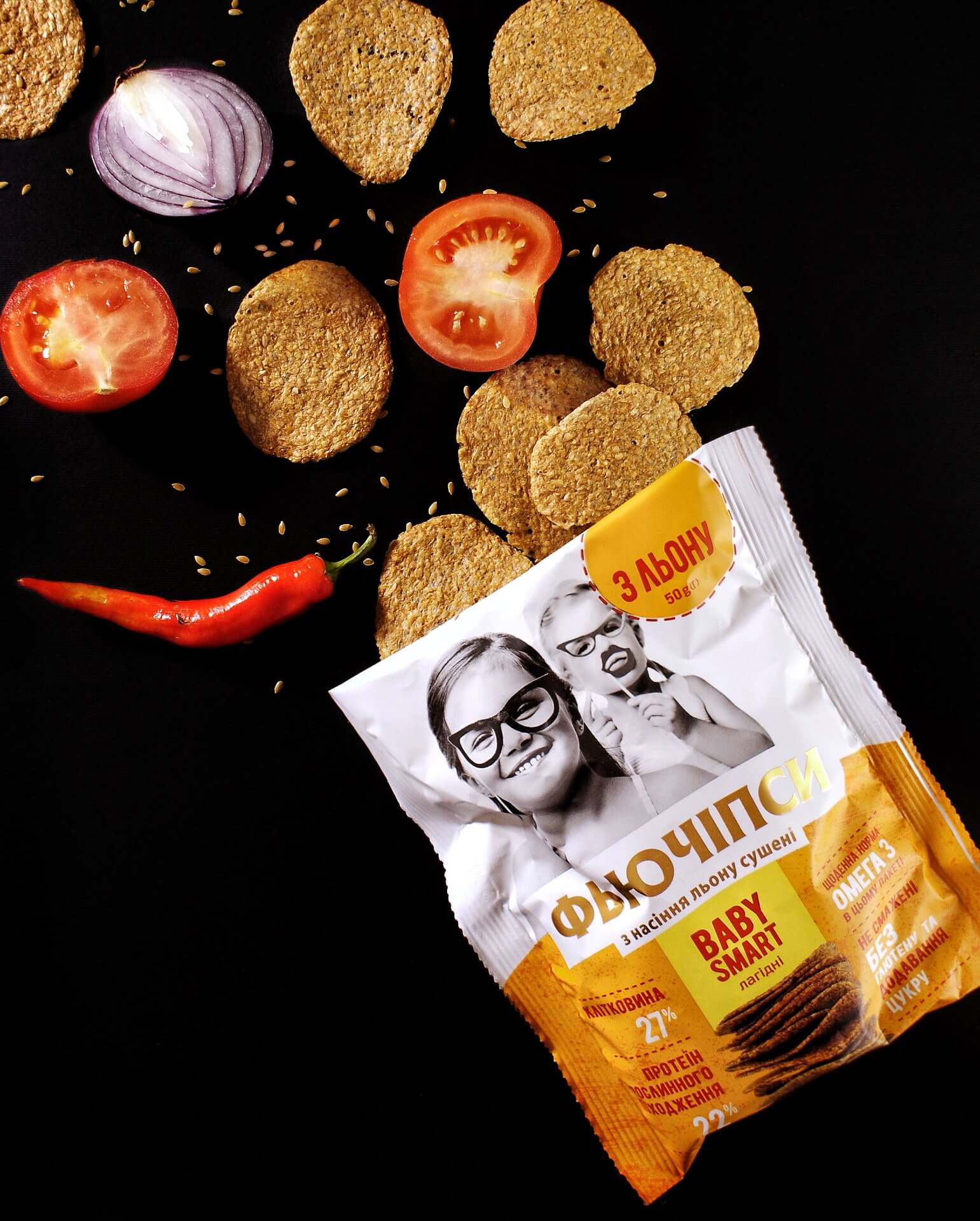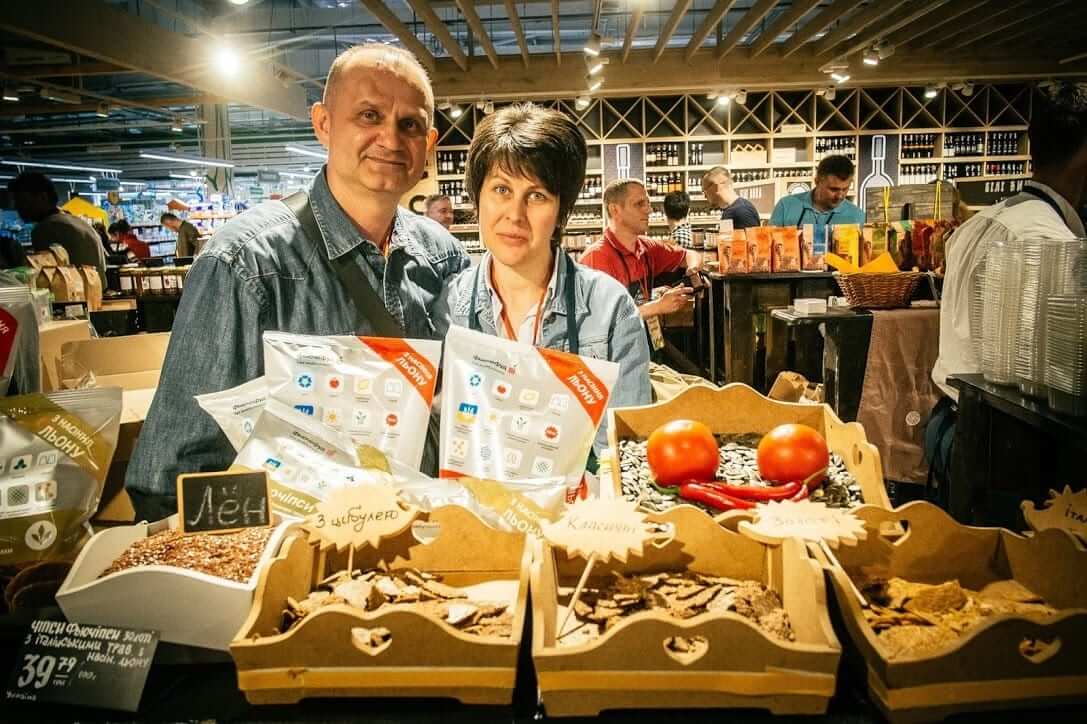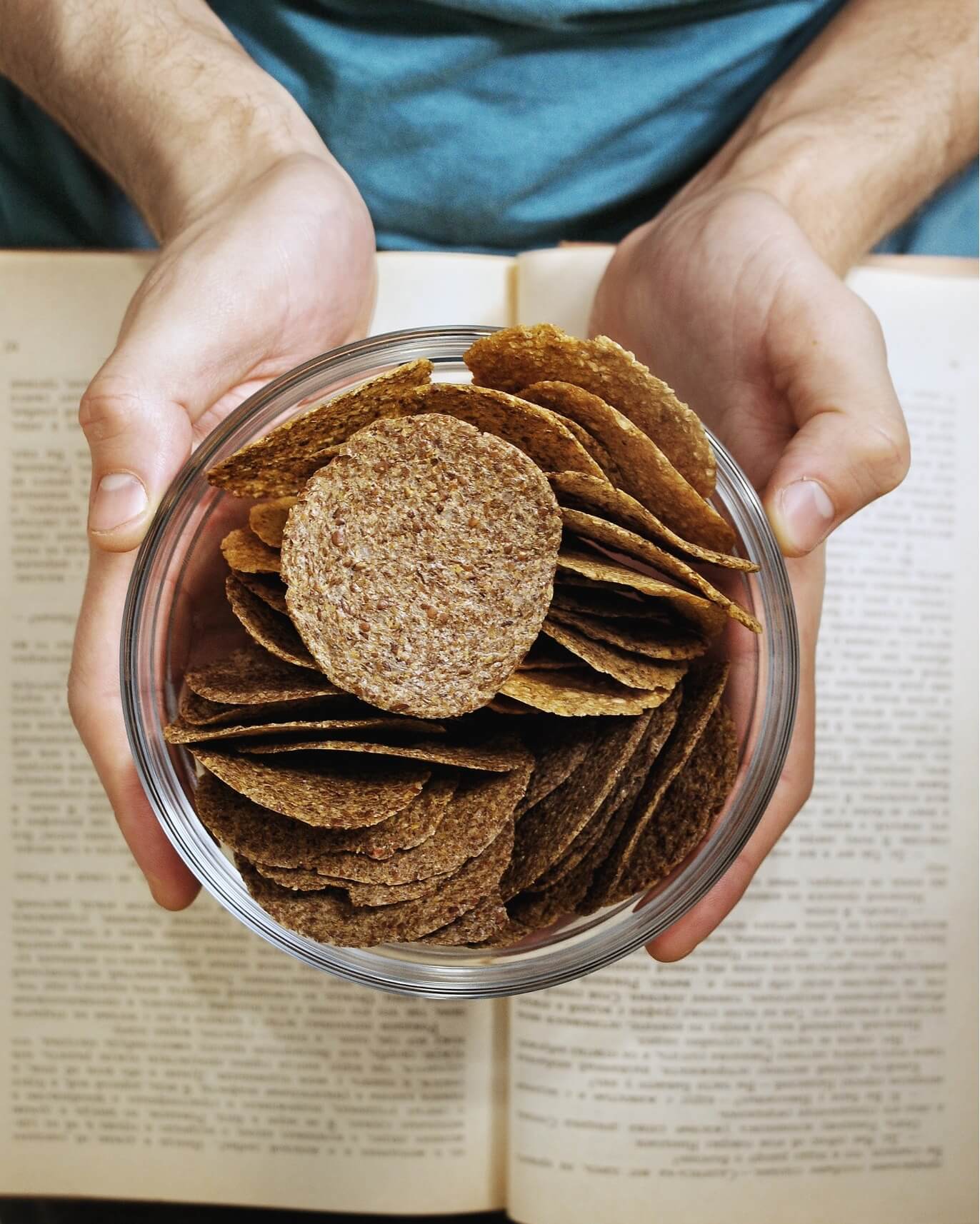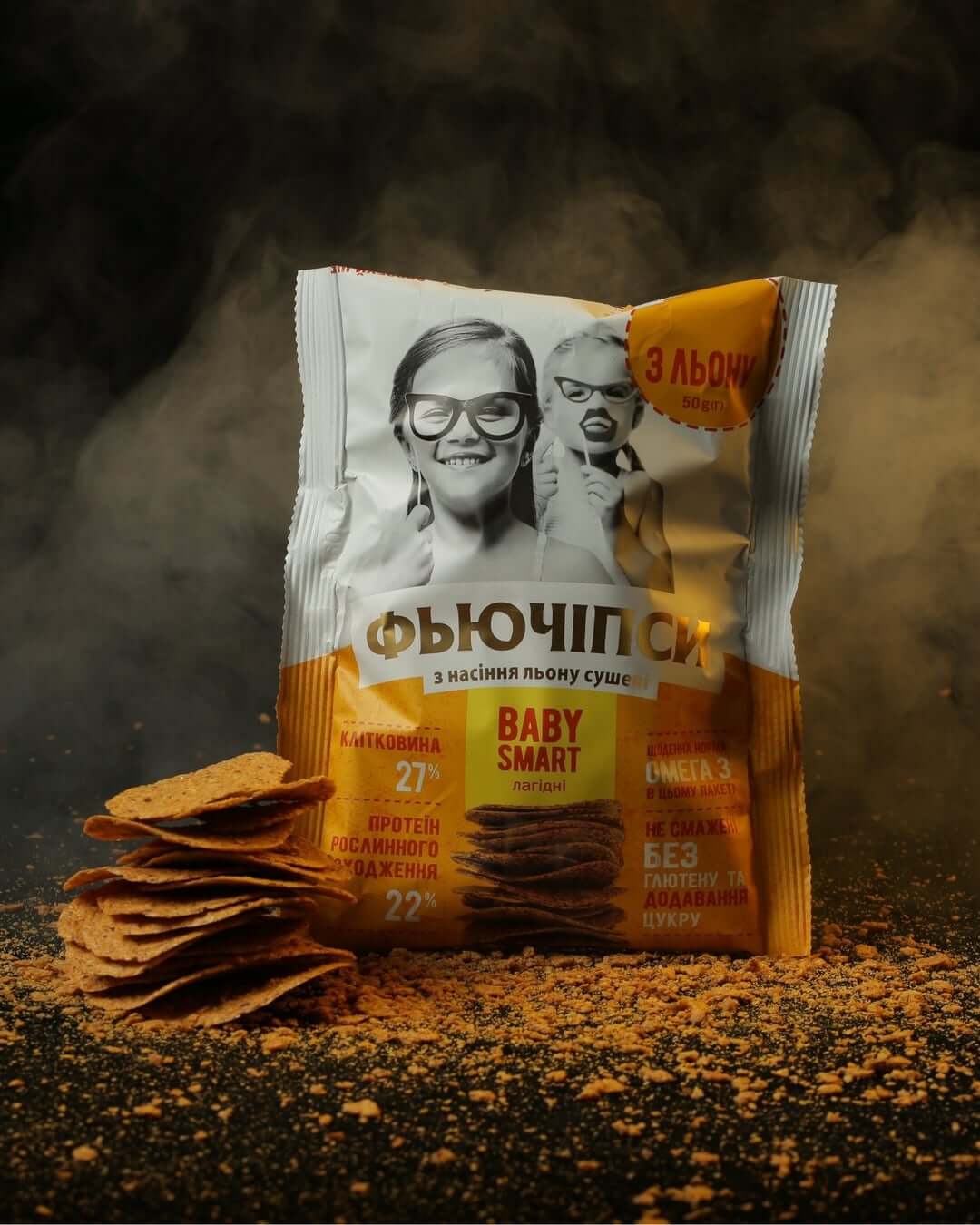The Golden Flax Seeds. How innovative snack producer in Ukraine grew despite lockdowns

Is pandemic the best time for business experiments? Perhaps, it isn’t. Still, it is a great opportunity to make a breakthrough for a product with an existing consumer base.
That was the way Futurefood chose. In 2015 this Ukrainian company started producing ‘fuchips’ — the innovative healthy snacks with flax seeds and seasoning that are already represented globally.
Now the four tastes of ‘the future food’ can be bought in the largest supermarket chains of Ukraine. It is designed for everyone from vegans and athletes carefully counting each gram of proteins in their daily menus to fast food fans.
NEWFOOD.MEDIA asked Sergiy Shakola, the CEO of Futurefood, how flaxseed snacks managed to gain a large market share and when people on both sides of the ocean will crunch fuchips.
Anti-COVID ‘vaccine’
None of the lockdowns managed to stop fuchips production. Last year’s sales didn’t fall. On the contrary, they grew. Surely, the team wasn’t idle. As the first lockdown began, they got together for a brain-storm and came up with several ideas — their own anti-COVID ‘vaccine.’
AS THE FIRST LOCKDOWN BEGAN, THE TEAM GOT TOGETHER FOR A BRAIN-STORM
One of the ideas was to downsize the pack. “The idea didn’t come out of nowhere. It had its foundations in the preliminary marketing research,” Sergiy Shakola explains. It allowed lowering the price of the pack. At the same time, the rebranding was carried out, and the packaging got a new design.

Last year Futurefood partnered with two popular supermarket chains — Auchan and Metro. They contributed to the sales at Eco-Lavca, Lavka Tradiciy, Silpo, Tavria B, and Velyka Kyshehya. “We also work with Platena Kino and Multiplex,” adds Sergiy.
These healthy snacks seemed to have found their way everywhere, from online stores selling healthy food to small regional chain stores. However, the company didn’t stop there. It started negotiations with the pharmacy chain, which is about to open a new modern shop in the Kyiv center. “It is a new experience for us,” says the CEO.
The new website contributed to the success. Now it is a full-fledged online store, providing retail shopping and a list of contacts for wholesale orders.
“However, the primary function of online channels is advertising. They allow us to conduct marketing research and various sales,” points out Shakola.
The first acquaintance
Creating a great product is not even half of the success. It is like running a long marathon, which many craft producers quit even before the start of any substantial sales.
CREATING A GREAT PRODUCT IS NOT EVEN HALF OF THE SUCCESS
Shakola says that the consumers learned about their products via exhibitions. One of the first breakthroughs was the Made in Ukraine exhibition. “Name another event where 30,000 – 40,000 people can see your product in two days. No supermarket sampling will have the same effect!” claims the executive.
This event was followed by the Vsi Svoi exhibition. It gave the start to the partnership with the Winetime company. “We remain partners and maintain friendly relationships,” notes Shakola.
According to him, sampling is the best way to introduce a new product to the customers. Some will buy it right away. Others will recognize the product on the shelf later and buy it. No one invented anything better, the executive points out.
“We came up with an unusual name for our product — ‘fuchips’ [‘f’uchipsy’ in Ukrainian]. And on it went. If we had a simple product like pasta, there would be no difficulty with naming. However, we had to distinguish ourselves from potato chips and place emphasis on healthy food,” Shakola recalls.

Women run the world
Exhibitions in Ukraine were only the starting point. In 2018, during the Global Protein Summit in France, the company participated in the food startups competition, winning the first prize in the nomination ‘The Best Plant-based Product.’
“We’ve got confirmation that the French experts highly appreciated fuchips. That’s why when the pandemic struck, advertising them was a simple matter. Stating the fact that it is a modern innovative type of snacks with awards from international contests was enough. A foreign, independent appraisal of our snacks’ quality was of great help,” says Shakola.
Now the company is researching the target audience to understand its transformation during the pandemic. The preliminary results show that the main group of consumers is women aged 35+, who care about their health and decide what to buy for their families. In other words, buying fuchips isn’t a one-time purchase for sampling. It is a well-considered regular act.
“Our main consumers are women who arguably care more about their health than men, decide upon the family menus, and choose snacks for children,” says the CEO of Futurefood.
What does it go well with?
And what about combining your product with something else? They in Futurefood consider it a great idea.
“We have partners who produce hummus. We call each other ‘sweethearts.’ If you take fuchips as a basis and spread hummus on them, you will get a great sandwich, healthy and suitable for any meal, be it breakfast, lunch or dinner”, provides a vivid description Shakola.
At present, he can offer snacks for any taste. However, five years ago, his company entered the market with one product, consisting of flax seeds and seasoning, packed in transparent plastic with two black-and-white stickers.

The plain exterior didn’t deter Eco-Lavka from placing the new product on its shelves. This chain-store specializes in healthy food manufactured by Ukrainian producers and craft businesses. At that time, a transparent pack of flaxseed chips was perfectly in line with their strategy. Though Sergiy agrees that such packaging wasn’t the best solution, as the sun made the chips fade.
At that time, Futurefood was flooded with orders. “They called us and asked to bring everything we had in stock. They didn’t ask how much we had. That inspired confidence, and we started to increase the amount of production,” — he recalls.
More on NEWFOOD.MEDIA


